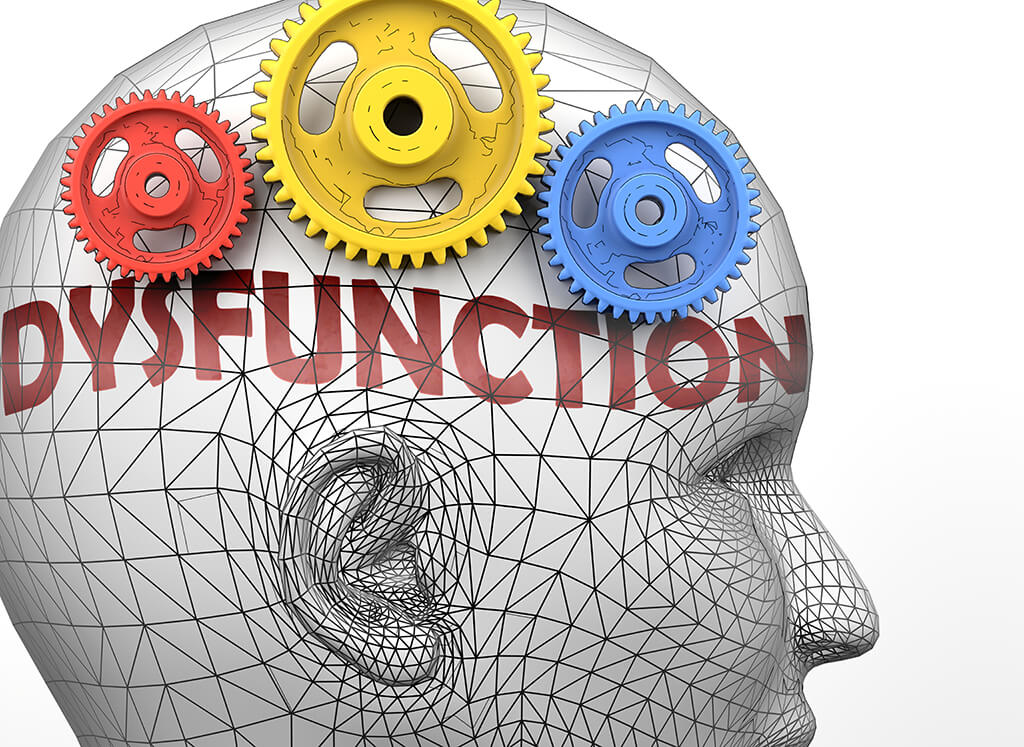People dealing with mental health issues will often avoid seeking treatment because they feel ashamed or mistakenly believe they don’t deserve help. However, functional mental disorders are medical conditions like any other and they warrant the same level of diagnosis and treatment.
What is the difference between an organic and a functional mental health disorder?
Functional mental disorders are conditions that can’t currently be linked directly to a physical cause. These conditions include Anxiety, Depression, Obsessive Compulsive Disorder (OCD), Attention Deficit Disorder (ADD), and post-traumatic stress disorder (PTSD). While the symptoms are real and often very distressing for the patient, the root cause of these mental health issues can be hard to determine.
Organic mental disorders usually have a physical origin, whether it’s a brain injury, damage through excessive alcohol consumption or a degenerative disorder like Parkinson’s Disease. As we learn more about the complex interconnections between mind and body, these distinctions between functional and organic mental health disorders have become less defined. As we now know—mental illness can develop from a combination of physical and psychological factors.
As a functional medicine practitioner, I look for the underlying causes in any condition, including hormone imbalances, diet deficiencies, and environmental toxins. Illnesses don’t occur in isolation, and as part of the Caregiver Clarity Call, I consider the complete person, including their past history and any significant trigger events. Traditional medicine favours a pharmaceutical approach to the treatment of mental health problems, but I believe this over-reliance on drug therapy is misguided. Statistics show that despite the increased prescribing of antidepressants over the past 20 to 30 years, the numbers of patients presenting with mental health issues remains high. Conventional medicine believes that mental health problems stem from a chemical imbalance, such as low serotonin levels. However the root cause is likely to be more complex and I believe a symptom only-based approach has been proven to be ineffective.
A functional medicine psychiatry approach looks at all the evidence, including metabolic testing and an analysis of the patient’s history, behaviours and other psycho-social factors. The individualized treatment can involve lifestyle adjustments such as sleep and exercise programs, nutrition and relaxation techniques that can empower the patient to take control of their health.
Types of Mental Disorders
There are over 200 recognised types of mental illness. We all experience moments of anxiety or feeling down from time to time, but if these feelings persist, they could by symptomatic of a more serious mental health problem. The most common mental illness conditions we encounter at the clinic are:
Anxiety disorders, such as social anxiety, phobias, OCD and PTSD.
Symptoms can include panic attacks, obsessive thoughts, generalised fear, nausea, headaches.
Mood disorders, such as depression and Bipolar disorder.
Symptoms include fatigue, irritability, negative thoughts, sleep problems, weight loss or weight gain.
Eating Disorders, such as anorexia nervosa, bulimia nervosa and binge eating disorder. Signs and symptoms include concern about body shape, reduction of food intake, excessive exercise and depression.
Dementia & Alzheimer’s Disease are usually related to aging, although dementia can also be caused by substance abuse or brain injury. There is increasing evidence that lifestyle factors such as exercise, social connection and dietary changes may help prevent the onset of Alzheimer’s. Functional medicine offers a holistic approach to disease prevention that is particularly suited to complex conditions such as Alzheimer’s Disease.
The Gut Health Connection
We know that the gut/brain connection is very strong and the gut biome has been shown to influence a patient’s response to stress and anxiety. A poor diet can negatively affect the health of the GI tract, and exacerbate any underlying mental health issues. As part of my health assessment, I provide patients with a nutrition plan to rehabilitate their gut and get them back on track to optimum health.
A Complementary Approach
Functional medicine works alongside more traditional treatments for mental health, such as psychotherapy. My whole body approach to health care investigates the biomedical issues that may be contributing to the patient’s mental illness, including nutrient deficiencies, allergies, environmental toxins and genetic disorders.
One of my goals for my patients is to help them achieve long-term wellness, not just a stop-gap treatment of immediate symptoms. We know that the body’s systems are all interconnected and resolving these underlying issues can help patients build up a physical and mental resilience and live a better life.
If you are looking for a functional medicine doctor for mental health in Arlington VA, I am here to help. Take control of your health and make an appointment for a Caregiver Clarity Call.



